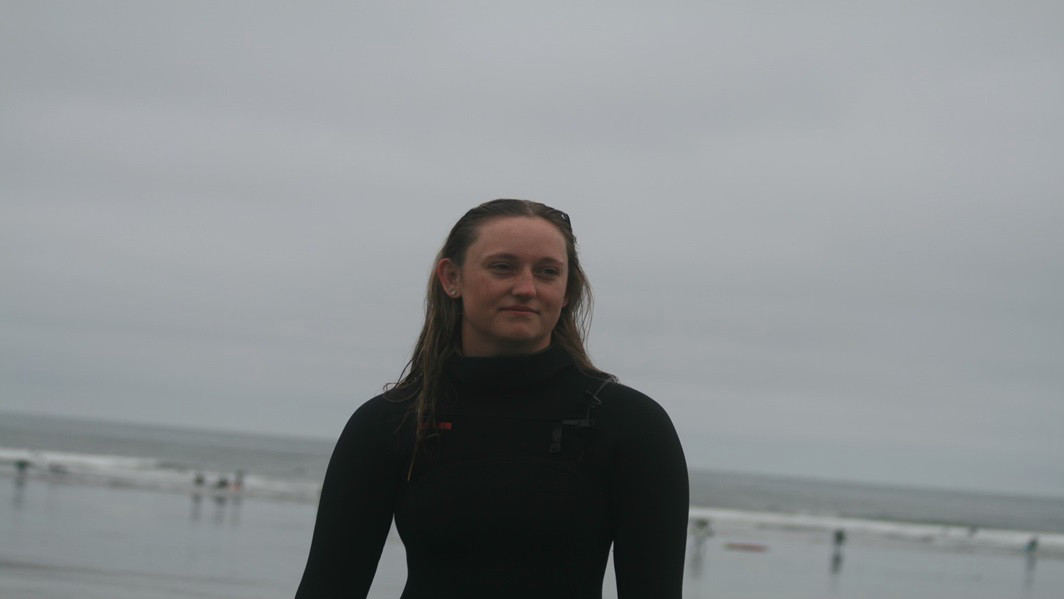Youth climate activists
March 07, 2024

(Aly Tkachenko, UVic PhD student, political science)
Political Science, PhD student, Aly Tkachenko, discusses findings from a new study, "Degrees of Optimism: a study of youth climate activists in B.C." Tkachenko conducted research with UVic political scientist, Will Greaves in a recent research project that contributes to a small but growing literature on youth climate activism in Canada.
The study shows most youth climate activists would participate in civil disobedience to bring about change. The survey cites youth activists as more fearful of the effects of climate change on vulnerable communities. And they strongly associate climate change with other social justice issues, such as, homelessness, civil rights, poverty, racialized poverty and injustice.
Why did you feel compelled to do this research? Why is it important?
(Aly Tkachenko) “My entire graduate studies career has been dedicated to studying the political dimensions of climate change, and I think the role of youth and young people in activism, governance, and politics is general is often overlooked.”
“We often hear leaders say that ‘youth are the future’, but that sentiment is quickly taken back when young people participate in climate protests or acts of civil disobedience. Events like Fairy Creek occur and the language shifts to discredit, discount, and downplay the awareness and knowledge of young people who are standing up for issues they see as being of existential importance.”
“I believe studies such as this one are important for amplifying and elevating youth activist voices so that hopefully policy and governance can be more responsive. This research shows that young people are informed, they’re educated and knowledgeable about these issues, and they don’t plan to stop demanding change anytime soon.”
“Personally, as a young person who also participates in climate activism, I have a vested interest in the goals and success of the climate movement. Outside of my studies, I volunteer with the Cetus Research and Conservation Society conducting marine mammal and vessel monitoring in the waters around Victoria.”
“Seeing firsthand how policies surrounding orca protection are having an impact on whale populations has highlighted the importance of connecting the people on the ground with policymakers.”
“I believe researchers have an important role to play in bridging the knowledge and perspectives of youth and activists with policymakers in order to work towards more equitable climate solutions.”
Was there anything surprising about the findings?
(Aly Tkachenko) “I was personally surprised by the wide variety of connections that participants drew across so many areas. It was really interesting to see so many young people recognize the interconnected nature of climate change with Indigenous rights, social justice issues such as housing, gender, and racial equality, and economic issues such as income inequality and anti-capitalism.”
“Both survey and interview participants were very clear that they saw climate change as resulting from, and exacerbating, this entire range of issue-areas. I found this to be encouraging and to show the strong level of awareness among young people and activists that they are working towards broader goals and more expansive policy changes.”
Are you planning any follow up surveys with more youth?
(Aly Tkachenko) “We have wrapped up surveys and interviews on this project and have completed the data collection phase. I’m not sure if you know the history of the project, but this was actually a study started by Dr. Will Greaves in 2018 which got interrupted by Covid-19 for about 16 months in February 2020, and then picked back up by the two of us in May of 2021. Because of that, the data collection was spread over a fair amount of time, and we actually did conduct some follow-up interviews with previous interviewees post-2021.”
“This research note is only the first written work to come out of this project though, we are certaintly planning to do more with the data! Dr. Greaves and I are actually just beginning work on a book chapter which will draw on some of the data collected through this project and connect it with larger trends and questions in BC politics.”
Notes:
“The original data presented in this research note were collected through a study of youth climate activists in British Columbia titled “Youth Activism and Canada’s Climate and Energy Policies,” approved by the University of Victoria Human Research Ethics Board (#18-1100). The target population for data collection was individuals aged eighteen to twenty-nine located in British Columbia who were involved with the climate movement in Canada, whom we characterize as “youth climate activists.”
